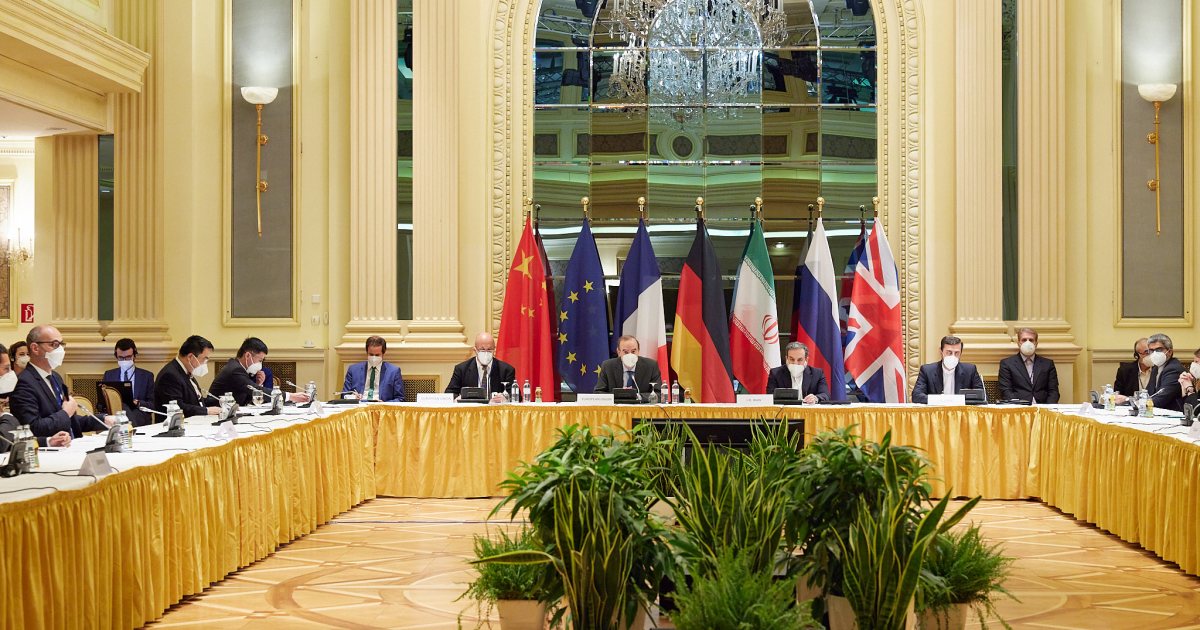After the progress in the Vienna negotiations between Iran and the signatories of the nuclear agreement, Israel began an intense movement to discourage Washington from returning to the nuclear agreement, while Saudi Arabia stressed the need to reach a nuclear agreement with "stronger and longer determinants."
Saudi Arabia called on Iran to engage in the ongoing nuclear negotiations seriously, to avoid escalation and not to subject the region's security and stability to further tension.
The Saudi representative in the Security Council stressed the need for the international community to reach a nuclear agreement with Iran with stronger and longer determinants, while implementing monitoring and control measures to prevent Tehran from obtaining nuclear weapons and developing the necessary capabilities for that, as he put it.
Israeli pressure on Washington
In Israel, Prime Minister Benjamin Netanyahu said that his government is not concerned with any nuclear agreement with Iran, stressing that Israel will continue its operations against Iran in the region to preserve its security.
This came in a meeting for Netanyahu with a security delegation scheduled to visit the United States next week, while an "last" Israeli attempt to pressure Washington and convince it of its position, before the Vienna negotiations reach a decisive stage.
AXIOS website quoted an Israeli official as saying that the delegation will include Israeli National Security Adviser Meir Ben Shabat, IDF Chief of Staff Aviv Kohavi, as well as Mossad chief Yossi Cohen.
The Israeli official said that Netanyahu held a meeting with the delegation, and asked to deliver a message that the return to the nuclear deal is a threat to Israel, and that it does not welcome the Vienna talks in which Iran and international parties are discussing ways for the United States to return to the agreement that these international parties reached with Iran in 2015.
The United States withdrew from the agreement in 2018 during the era of former President Donald Trump, and has re-imposed sanctions on Iran, which responded starting in 2019 by loosing the agreement's restrictions on its nuclear activities.
An American concern about the development of Iran's missiles
On the other hand, US Central Command Commander Kenneth McKenzie said that the accuracy of Iranian missiles "has become better and calls for concern," stressing that "what is happening between Israel and Iran is disturbing, but it will not drag us into war."
McKinsey added that Iran has not undertaken any irreversible activities in its nuclear program.
McKinsey had seen that the missile, which launched two days ago from Syria and landed near the Dimona reactor in Israel, "does not appear intentional and shows the incompetence of the Syrian side."
On the other hand, the Assistant for Coordination Affairs of the Iranian Revolutionary Guard, Major General Muhammad Reza Naqdi, said that Israel should realize that whoever carries out evil actions must expect that the repercussions of his actions will affect him.
He added that Israel tried to cover up what happened, but the intensity of the explosions prevented it from doing so.
Russian position
On the other hand, Russian Foreign Ministry spokeswoman Maria Zakharova said that Moscow is satisfied with the efforts made in the talks in Vienna to revive the joint comprehensive action plan on the Iranian nuclear program.
She added that these talks aim to restore the agreement as soon as possible and implement it according to the agreed criteria and timetable.
Iran had announced the switch to uranium enrichment by 60%, which is a leap towards the degree needed to manufacture weapons from the previous purity rate of 20%, in response to an explosion and a cutoff in electric power at the Natanz nuclear facility last week, which Iran blamed on Israel.

